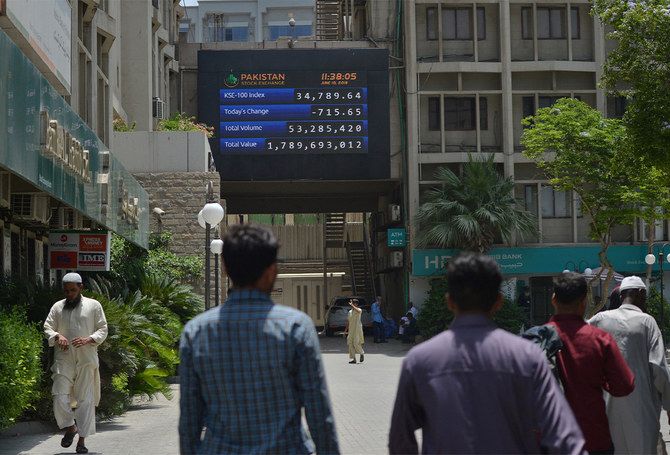KARACHI: The complex documentation process to open investor accounts with stock brokers recognized by the Pakistan Stock Exchange (PSX) frequently annoy people, said the top PSX official on Tuesday, adding the convoluted paperwork was to satisfy the Financial Action Task Force (FATF) requirements.
The global dirty money watchdog placed Pakistan in 2018 on its grey list of countries with weak and vulnerable financial systems that could be exploited by terrorist networks and other criminal elements.
Pakistan has since tried to implement and abide by FATF action plans, fulfilling most requirements and questioning the wisdom of its continued presence on the list of countries of concern.
“If you call a broker and ask him to open your account, you will have to submit proof of income, tax returns, employer’s letter and many more documents, especially if you want to invest more than Rs0.8 million in the equity market,” Farrukh H. Khan, managing director of PSX, said while briefing journalists at the Karachi Press Club.
“But if you go for investment in real estate and buy a house worth Rs100 million, no one will ask you anything. Similarly, if you invest in the national saving scheme, you will not need to fulfill all these requirements. So, it is very easy for you to invest in those avenues instead of spending so much time here [at the stock market],” he said while advocating for uniform documentation requirements for all investment channels.

Managing Director of Pakistan Stock Exchange Farrukh H. Khan receives a souvenir from Karachi Press Club Secretary Muhammad Rizwan Bhatti in Karachi, Pakistan, on March 15, 2022. (AN Photo)
Asked about the impact of the complex documentation, he said it was huge.
“It is very difficult to estimate the number [of investors who go away], but it is creating a big impact,” Khan said, adding: “The process irritates investors.”
He noted that Roshan Digital Accounts, which overseas Pakistanis opened with banks, provided a much better way to invest in stocks because they already fulfilled the know-your-customer (KYC) requirement of banks.
Responding to a question about the impact of the volatile political situation of the country, the PSX chief said the political turbulence and global oil prices were negatively impacting the equity market.
“Due to the current situation, a big technology company pulled out of the initial public offering (IPO),” he informed.
Khan said that stock market was highly liquid and could be used to raise funds for construction of roads and other infrastructure development projects.
He informed the PSX had reached out to the finance ministry and proposed that investments under individual saving accounts should be made tax free to a certain limit.
Raeda Latif, head of marketing and business development at PSX, informed that market capitalization stood at Rs7.87 trillion ($44.89 billion) and over 269,000 investors along with 204 brokers actively supported the stock exchange.
“The government needs fund for a number of projects, including roads and power generation, and stock market is the best place from where this money can be raised,” she said. “Over the last five years, companies have raised Rs45.9 billion by listing on the Pakistan Stock Exchange.”
The PSX officials said if the macro situation of the country improved, about four new companies, mostly from the technology sector, would be listed by June 2022.












